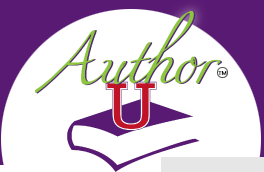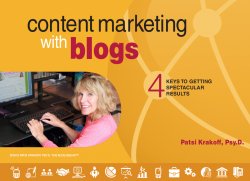 Experts know a lot. Of course they do, any professional who’s been gathering experience for 20, 30, even 40 years has a lot to say. But many experts think they can pour out everything they know into an ebook and readers will want to buy and read it.
Experts know a lot. Of course they do, any professional who’s been gathering experience for 20, 30, even 40 years has a lot to say. But many experts think they can pour out everything they know into an ebook and readers will want to buy and read it.
I call this the fire-hose writing approach. Give them everything you’ve got and hope that you hit a nerve that resonates.
You could be wrong. Readers don’t really want to know everything about your field of expertise. They mostly just want to fix a problem they’re having.
The biggest mistake experts make when writing an ebook is to focus on what they know instead of on what readers want to learn.
Reader Focused Writing
This is why you must shift your focus when writing an expert ebook from your expertise to how your readers and clients struggle.
For example, when listing a table of contents that takes the reader from A to Z – everything you know about coaching and goal setting – just to pick an example – your ebook contents needs to go directly to the reader, what he/she struggles with, why traditional solutions don’t work, what new solution you offer, and how the reader will benefit.
In other words, smart experts write an ebook following this progression:
- Who are you writing this book for, and why (which problems do readers face)?
- What common solutions exist and why they don’t always work?
- What new ideas and solutions can you share (challenge the status quo)?
- How will the reader benefit?
- What can readers do today to resolve their frustration?
This is not a new concept, but it can’t be emphasized enough when it comes to writing quality digital content designed to highlight your expertise in an expert ebook. Those ebook writers who start writing with a reader-centered focus will not only have an easier time writing their book, but they will also end up with greater appeal to their audience.
In website design, this is called “user-centered design” process. It’s frequently used in product development and R & D. In brief, it’s a process for creating products and services that work well for the end users. You create your design to help people achieve their goals in ways that will work for them.
As an expert, you should already know your targeted audience well since you’ve been working with them for years. Maybe they’ve changed, and if so, you need to find out what their frustrations are. Find the “sweet spot,” what they most want to discover.
Then help them understand and discover solutions they may not have thought of.
Readers don’t want to know everything you know, they don’t want to become experts. They want to fix what’s wrong and your job is to help them understand how to do that in plain language.
I’m guessing that the biggest problem that experts have in writing about their own field is that, like the spy who gets killed, “they know too much.”
Instead of blasting readers with a fire-hose, target their problem and pain with a small fire-extinguisher. It’s much kinder, don’t you think? Don’t ruin your chances of successfully publishing an expert ebook that helps you get found, get known, and get clients.
(Photo: freedigitalphotos.net)














Recent Comments